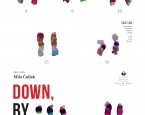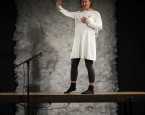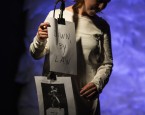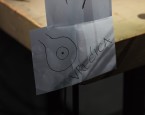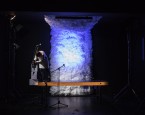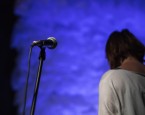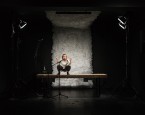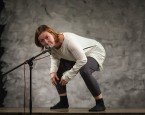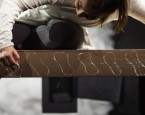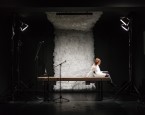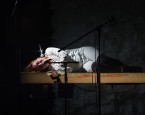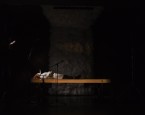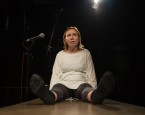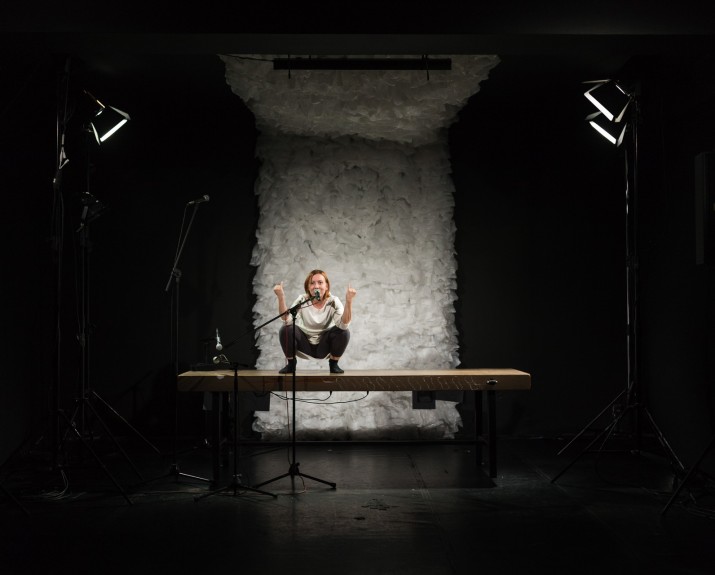
Premiere DOWN, BY LAW (ZAJC LAB)Mila Čuljak
Down, by Law is a monodrama written as the impression of the period from the birth of the child Boris until the time this piece was written. The struggle with wishes, expectations, operations and illnesses, implanted in the surplus of the chromosome 21, also created a specific parenthood that the author wrote into a new code – the performing code of collectiveness. The monodrama author, Mila Čuljak, who is Boris’ mother, aspired to strengthening of the daily life that brought the intensity of emotional, organizational, care providing and social balancing. Wishing this story, as well as Boris, to contribute to the understanding and support to the community of people with Down syndrome, she looked for a body to write her experience out, weave and dance it.
Running time:
The performance lasts 55 minutes.
The expression down by law has more different meanings in slang. In music (mainly jazz), this expression denotes the achieved success and the earned respect for someone’s talent due to his/her hard work.
In the prison jargon, it means that someone is protecting your back. Jim Jarmusch, director of the film with the title Down by Law, says that this expression was used in the 80’s in the street slang denoting a close person. Earlier, it was used in the prison slang for the person who upon leaving the prison would contact the family of the prisoner he had shared the prison cell with, taking care of them if necessary. Namely, the expression down by law denotes closeness and togetherness.
Our monodrama was written as the impression of the period from the time of birth of Boris, a boy with Down syndrome, until the time when this piece was written. The struggle with wishes, expectations, time spans, operations and illnesses impressed in the surplus of the chromosome 21, also created a specific parenthood that I wrote in a new code, the performing code of togetherness. Writing I aspired to the strengthening of the daily life that brought the intensity of emotional, organisational, nursing and social balancing. Wanting this story that has asserted itself, just as Boris has, to contribute to the understanding and support of the community to the people with Down syndrome, I looked for a body to write in, weave and dance out. These are 55 minutes of closeness, togetherness, care, tenderness and understanding for all families of people with Down syndrome and all of us.
Mila Čuljak
Some three years and a few months ago, at the beginning of pregnancy, I was told there was a high “risk” of giving birth to a baby with Down syndrome. After that, the father and I spent the time recognising, enlarging and belittling that risk, we risked by continuing the pregnancy, refused to undergo the amniocentesis, risked by paying alternative tests for which we did not have money, risked the dimly drawn idea of future. In short, we risked the idea of the good life that we had. After some time, it appeared that the child probably was not going to be born with Down syndrome so that we became overwhelmed with the feeling that we had managed to get out of it. While we still had not got out of which we ever so much wanted to get out of, the hope for getting out of it we saw only in being involved in others and others to be involved in us. For someone to protect us in the street. When we realised that we had actually got out of it, we asked ourselves what about the others who had been involved and what happens when we, the ones who had managed to get out of, feel having got out of something that others are involved in and there is no way for them to get out of it. Not as yet. It became clear that it is not a matter of us to get out of it, but to become involved in or at least try to put in order the outer world for those who are involved temporarily or in the long run.
Mila Čuljak wrote the text on the experience of being a mother of a child with Down syndrome, also the experience of being a performer, worker, citizen, member of a community upon which she and her family depend on, but which, you will see, also intensively depends on them. In that sense, this performance does not endeavour to represent a necessarily specific experience, that is, truly depict what it is like to be Mila Čuljak. Actually, taking over the material that Mila is offering to Jelena and other associates, Mila’s experience becomes ours, and our experience becomes Mila’s. This performance endeavours to take care of us, while we, watching it, want to take care of it. We are involved in the life together during the performance; also, let us hope so, in the life together in the time that follows it.
Nataša Antulov

